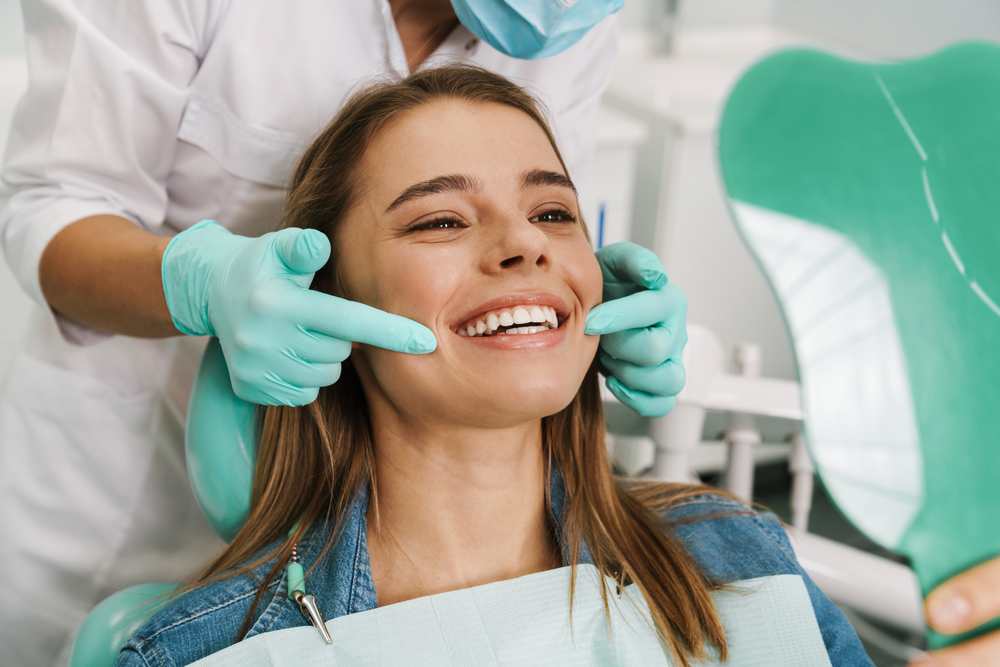
Teeth grinding or clenching, technically called bruxism, is common. If you’re one of the millions of people with bruxism, you might be wondering if you can still get braces or Invisalign. Will teeth grinding wear your aligners out? Will you be able to find a teeth grinding guard for braces? In this post, our Juneau, AK and Bothell, Monroe and Mill Creek, WA orthodontist, Dr. Richard Chan, will be going over everything you need to know about bruxism and orthodontic treatment.
What Causes Teeth Grinding?
There are two types of bruxism: awake bruxism and sleep bruxism. With awake bruxism, you unconsciously clench or grind your teeth while you’re awake. Clenching and grinding teeth in sleep is known as sleep bruxism.
As for what causes teeth grinding, experts believe it can be due:
- Stress, anxiety, anger or frustration (awake bruxism is often tied to emotions)
- Genetics (sleep bruxism tends to run in families)
- Sleep apnea and other sleep disorders
- Certain medications
- Substances (i.e., caffeine, alcohol, tobacco products, etc.)
- Health conditions, including GERD, Parkinson’s disease, dementia and ADHD
- Misaligned teeth and bite problems
Complications of Bruxism
Most people don’t need treatment for awake bruxism or occasional, mild sleep bruxism. If you’re chronically grinding your teeth in sleep, on the other hand, it should be treated, because it can cause:
- Excessive wear of the enamel
- Fractured or chipped teeth
- Damaged dental restorations
- Temporomandibular joint (TMJ) dysfunction and pain
- Headaches
- Earaches
- Pain when chewing
- Loose teeth
- Difficulty sleeping
According to Cedars Sinai, many people don’t realize they are grinding their teeth during sleep until a sleep partner mentions it, they wake up with sore facial muscles and stiffness, or a dentist notices certain wear patterns on the teeth.
Can You Wear Invisalign if You Grind Your Teeth?
Yes, most patients can get Invisalign if they grind their teeth. Chronic teeth grinding with Invisalign could cause the aligners to wear down more quickly. However, since you only wear each set of aligners for one to two weeks, by the time you’re in need of a replacement, you’ll usually be on to your next tray.
There are rare occasions where someone’s bruxism is so severe that they would wear out their aligners before it was time to change them. In these cases, we will ask Invisalign to give us two sets of each aligner, or getting braces could be the better option. But one advantage of Invisalign is that while you might be grinding your trays down, at least you won’t be grinding your teeth down!
What About Braces and Teeth Grinding?
Yup, you can get braces if you grind your teeth. As we mentioned above, occasionally, braces could be preferable to Invisalign for patients with severe bruxism.
Will Braces or Invisalign Help With Teeth Grinding?
Whether or not braces or Invisalign can help with teeth grinding depends on what’s causing your bruxism. Bruxism is more prevalent in people with misaligned teeth and, if that’s the case for you, then aligning your teeth with orthodontic treatment will help to reduce the behavior.
If you grind your teeth when you’re awake, Invisalign aligners can serve as a reminder, making you more aware of the habit. This too can be beneficial for reducing or stopping grinding and clenching.
It’s important to note though that for some orthodontic patients, teeth grinding gets worse before it gets better. The mild sensitivity that occurs when you start treatment, as well as the shifting of your teeth, can temporarily increase grinding and clenching. For this same reason sometimes the bruxism will decrease at the beginning of the treatment, as the increase in sensitivity will cause an automatic feedback to stop grinding the teeth.
Can Invisalign Be Used as a Night Guard?
When it comes to how to stop teeth grinding, a multi-disciplinary approach is often best. Managing the underlying cause of your teeth grinding is important, whether it’s treating a health condition or finding new ways to cope with stress. Additionally, a lot of people also benefit from a special mouth guard for teeth grinding, called a night guard. The appliance helps cushion against the biting or clenching forces to prevent damage to the teeth and jaw.
If you’re straightening your teeth, can Invisalign be used as a night guard? During your treatment, yes, Invisalign can be used as a night guard to a certain extent. You can’t wear a night guard instead of your aligners because you need to wear your aligners for about 22 hours per day for optimal results. Your aligners are actually pretty similar in design to a night guard and will provide some cushion between the upper and lower teeth.
Can I Get a Teeth Grinding Guard for Braces?
Since braces don’t cover the entire arch of teeth like aligners do, you can still wear a night guard during your braces treatment. In fact, wearing one will be in your best interest if your bruxism is severe and likely to damage your teeth, jaw and/or appliance.
Keep in mind that your teeth will shift throughout your braces treatment. This means you’ll have to change your night guard so that it continues to fit. When choosing a teeth grinding guard for braces, a boil-and-bite or custom orthodontic guard will be the most affordable options. With an over-the-counter, boil-and-bite night guard, you can simply make a new one as needed. A custom orthodontic guard will account for your appliance and allow for the movement of the teeth, so you won’t have to constantly replace it.
Schedule a Complimentary Consultation at Richard Chan Orthodontics Today!
If you clench or grind your teeth and want to learn more about your orthodontic treatment options, schedule a complimentary consultation at our Juneau, AK or Bothell, Mill Creek or Monroe, WA orthodontics office. Dr. Chan will perform a comprehensive exam and assess your diagnostic records in order to provide you with personalized treatment recommendations that will bring out the best in your smile.
